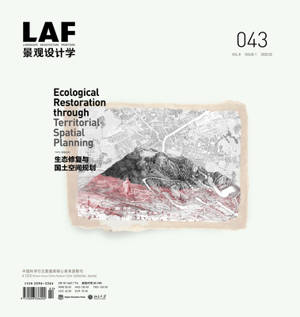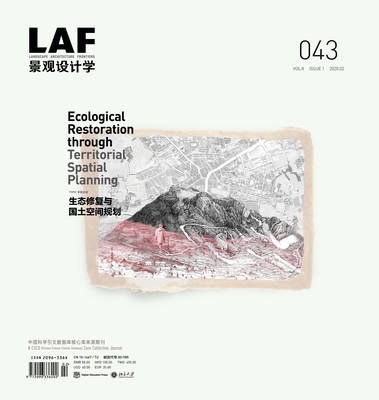
- Afhalen na 1 uur in een winkel met voorraad
- Gratis thuislevering in België vanaf € 30
- Ruim aanbod met 7 miljoen producten
- Afhalen na 1 uur in een winkel met voorraad
- Gratis thuislevering in België vanaf € 30
- Ruim aanbod met 7 miljoen producten
Zoeken
Landscape Architecture Frontiers 043
Ecological Restoration Through Territorial Spatial Planning
Kongjian Yu, Niall Kirkwood, Chirstina von Haaren, Zhifang Wang, Bruno De Meulder, Xiaxuan Lu, Federico Ruberto
€ 55,95
+ 111 punten
Omschrijving
This issue focuses on: 1) Exploring the significance of territorial spatial planning by stressing its necessity and main ideas under the contemporary background of ecological civilization construction in China, while re-examining the role of landscape architects in this reform. 2) Strengthening research on related methodologies and techniques of urban ecological planning, ecological security pattern, ecological infrastructure, and ecological restoration to improve cities' liveability and resilience and rebuild harmonious human-nature relationship under a mandatory planning framework combined with resilient measures, avoiding inflexible ecological conservation practices. 3) Analyzing and learning from diversified efforts made by different countries and regions to promote urban development while protecting ecosystems, particularly their experience on territorial, regional, and urban planning that is significantly valuable to the Chinese counterpart, to leverage the value of territorial natural resources. 4) Exploring feasible approaches that help restore urban ecosystem structure and ecological elements, and improve planning and design methods on specific sites, so as to enhance spatial construction and ecological quality, to eventually improve a national eco-security pattern with scientific and user-friendly planning and design. 5) Encouraging applications of research frontiers in geology, macro-ecology, regional economics, public management, and sustainability science.
Specificaties
Betrokkenen
- Auteur(s):
- Uitgeverij:
Inhoud
- Aantal bladzijden:
- 164
- Taal:
- Engels
- Reeks:
Eigenschappen
- Productcode (EAN):
- 9781951541415
- Verschijningsdatum:
- 1/06/2020
- Uitvoering:
- Paperback
- Formaat:
- Trade paperback (VS)
- Afmetingen:
- 279 mm x 287 mm
- Gewicht:
- 771 g

Alleen bij Standaard Boekhandel
+ 111 punten op je klantenkaart van Standaard Boekhandel
Beoordelingen
We publiceren alleen reviews die voldoen aan de voorwaarden voor reviews. Bekijk onze voorwaarden voor reviews.











